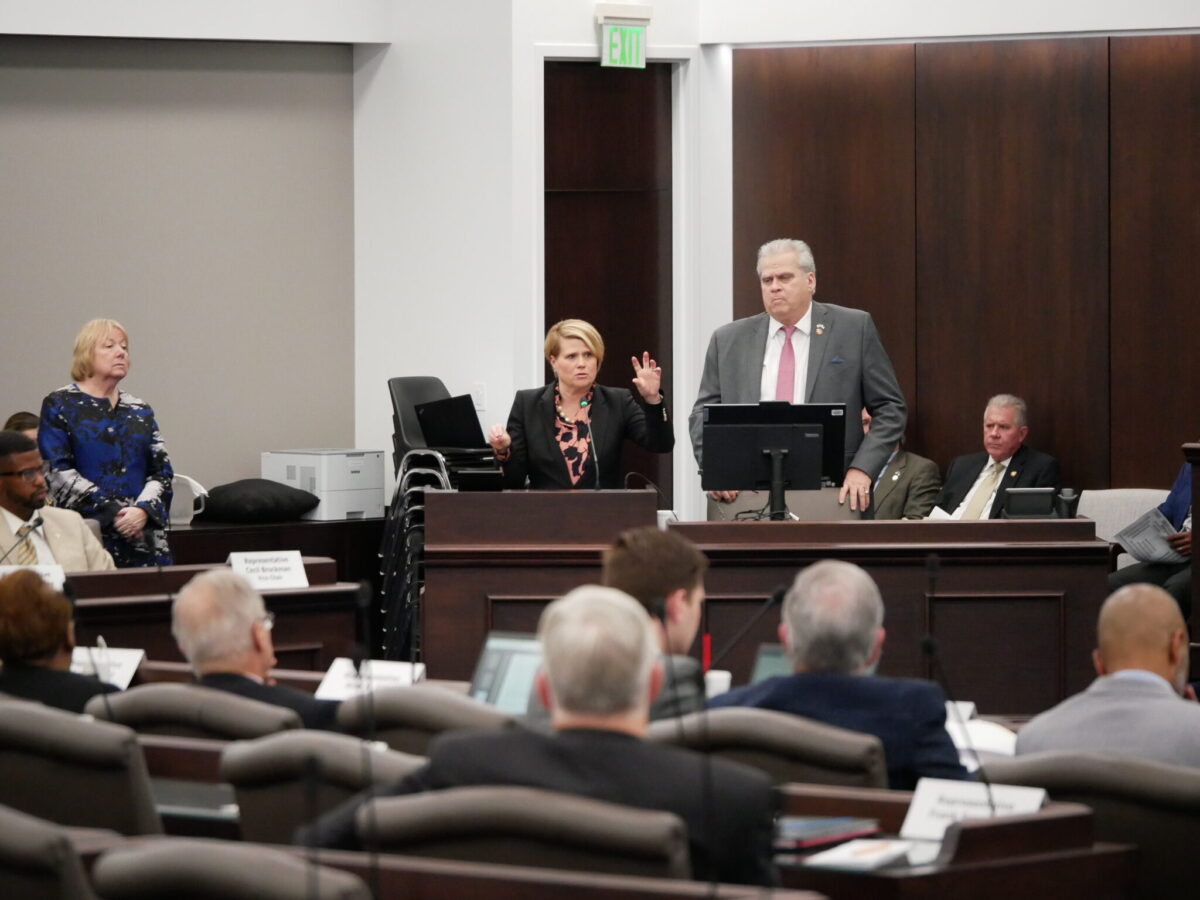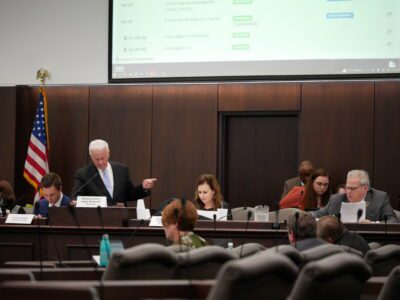
|
|
State Superintendent Catherine Truitt is asking members of the General Assembly to increase penalties for teachers or school staff who engage in sexual misconduct against students.
She testified before the House K-12 education committee Tuesday about the importance of a bill being considered to deter sexual misconduct and create penalties against school and district leaders who don’t report it.
“The overwhelming majority of teachers will never come anywhere close to violating the rights of students,” she told lawmakers. “But I firmly believe that one violation is too many, and I believe that we can do more to ensure our schools remain safe for students to learn and grow.”
The bill, called “Protect Our Students Act,” increases the penalties for sex offenses against students and taking indecent liberties with students to a Class G felony. It makes it a Class I Felony for school and district leaders to not inform the State Board of Education when they know of, believe, or have received a complaint of misconduct that ends in dismissal, disciplinary action, or resignation.
The bill also states that if an employee resigns within 30 days of a complaint for misconduct or during the investigation of a complaint, then “the misconduct is presumed to have resulted in the resignation.”
Another part of the bill includes development of an informational video for students in grades 6-12 to teach them about sexual misconduct.
Truitt told lawmakers that one of her jobs is to renew or determine whether a teacher’s license should be suspended or revoked. She said that between January 2016 and October 2022, there were 124 instances of sexual misconduct with students that ended in a revocation, suspension, or surrender of a teacher’s license. She puts the average at 20 per year.
Further, she said that news reporting indicates in 2022 there were more than 50 school personnel who were facing charges, had charges pending, or were being investigated by law enforcement for sexual misconduct. Since no action has been taken against them yet, they weren’t included in the 124 number mentioned above.
She said, however, that in all those cases, to her knowledge, the suspected individual had been fired or resigned.
Truitt said in many of these cases, the sexual abuse came about as a result of something called sexual grooming.
“While it may be coded or tagged as something else, sexual grooming is often present in sexual abuse cases against students,” she said. “As those of us in this room know, grooming is a gateway to sexual abuse. It is designed to build trust, foster a deeper relationship, or further an emotional connection between a person and an abuser.”
She said the problem is that grooming often resembles a kind interaction or an offer of support, rather than a threat. It can include texts, social media, direct interaction, and more. She said that students often don’t know what’s happening, which is part of the reason that a video is included as part of the legislation.
“High school students tend to think it’s kind of cool when their adult teacher is paying attention to them. And then before they know it, the situation is something they cannot handle,” she said at one point in the presentation. Later, on the video component of the legislation, she said “Students should be empowered to recognize when an adult crosses the line.”
Rep. John Torbett, R-Gaston, said at the top of the committee meeting that he never expected to have to deal with a subject like this.
“It’s not a happy bill by any means. But I think … it would be for the betterment not only for kids in our schools right now, but for the future of North Carolina children in education,” he said.
Rep. David Willis, R-Union, called these kinds of cases “unimaginable.”
“So I think it’s commendable that you guys are addressing this,” he said. “It’s horrific that we have to address it.”
The bill passed the committee and is slated to be heard in a House Judiciary 2 committee next.



